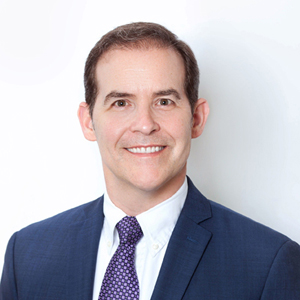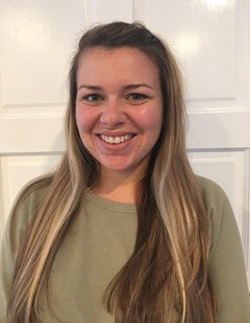It’s Not Too Late to Share for Inclusion in FDA Report
Over 130 peers and peer-supporters participated in an in-person and live webcast to share their personal definition of wellness for living with a mood disorder on November 16, 2018 at an externally-led patient-focused medical product development meeting. The meeting held in Silver Spring, MD is part of a program initiated by the FDA several years ago to obtain the patient perspective on the impact of living with a disease or a condition and desired treatment outcomes. The active listeners included FDA staff and employees of eight different medical product developers who heard first-hand from panelists who shared their stories and from peers in the audience.
The Supporting Wellness survey launched in August served as the foundation for much of the event’s discussion. The survey closed on November 30, 2018 with responses from over 6,400 people. Among the key findings:
- 43% of respondents stated that their overall health was worse since being diagnosed,
- 75% shared that symptoms had a significant impact over their lifetime, and
- 86% ranked “Ability to be independent or act according to my own will,” as a wellness priority.
DBSA will be collating this collective input into a final report to FDA staff in early 2019. However, it’s not too late for you to provide your own thoughts. The meeting was recorded and has been broken into seven, thirty-minute segments. You can access the recordings at this link.
Whether or not you view the recordings, we want to hear from you. Please feel free to email DBSA your own views on wellness to Advocacy@DBSAlliance.org. All comments will be included in the final Voice of the Patient report.
Note from Michael Pollock, Chief Executive Officer

Amplifying the Voice of Those Living with Mood Disorders
A key aspect of our patient-focused medical product development meeting were the individual stories of those living with a mood disorder. Eight panelists shared their personal experiences (and in one case a parent who talked about his experience as a care giver for his daughter). Creating more opportunities for peers to share their story and advocate for themselves along with others is core to DBSA’s mission and direction. Creating and executing communication strategies will be a major priority in 2019.
DBSA is working on a plan to support the strategy below to ensure that the voices of individuals living with mood disorders are heard, understood and result in action. Elements of the plan include ways to recruit, train, and support more individuals living with mood disorders to share their stories with the media, industry and government partners, and others.
Strategy: Identify individuals with mood disorders who can speak on behalf of DBSA to:
- Reduce the stigma around mental health conditions;
- Promote DBSA’s programs and services;
- Discuss how DBSA’s programs and services helped those specific individuals;
- Increase DBSA’s national and regional visibility; and
- Expand/better leverage DBSA influencers.
We will share more details on ways you can get involved in 2019. In the meantime, if you are already sharing your story and would like to connect with Kevin Einbinder, Communications and Programs Vice President, please email him at keinbinder@dbsalliance.org.
Wishing you a safe and happy holiday season.
Michael Pollock
Chief Executive Officer
Life Unlimited: Katie Terry

Last April, I found myself in the office of a new therapist for the third time due to a homophobic comment made by my previous therapist. Mental illness had become my norm. I started having difficulties at seven years old. I feared leaving my house, going to school, interacting with people and had an overwhelming feeling that I was going to get in trouble for doing something wrong. Throughout the remainder of my childhood and college years, I was able to manage my symptoms with the help of family, friends, teachers, coaches and school psychologists.
Even though I had grown used to a life with mental illness, I knew things were different this past April. For a week at a time, I talked fast, slept less, took risks uncharacteristically and had difficulty focusing on one task at a time. Then, my mood would shift. The following two to three weeks would be filled with isolation, extended periods of sleep, crying and hopelessness. And then my mood would shift back again. Something was really wrong. I knew that I needed to find a new therapist immediately.
After describing my symptoms at the time, the therapist started to ask me in-depth follow-up questions. At the end of the questions, they stated my symptoms indicated I had bipolar disorder. My body got tense and my heart started pounding. I was scared of the possible effects a bipolar disorder diagnosis would have on my relationships with loved ones and my future. And fearful of how I would deal with the stigma. It took about a week of processing for me to accept my diagnosis and to feel relieved. Anxiety, depression and obsessive-compulsive disorder—my previous diagnoses—were never correct. Bipolar disorder accurately addressed the entirety of my symptoms.
After almost two decades, I started to work towards a life of recovery with the correct diagnosis. For the greater part of the last year, I have made the intentional decision to focus on my physical and mental health. I see a therapist, acupuncturist, nutritionist and psychiatrist regularly. I do my best to sleep 8-9 hours a night, eat foods that meet my nutritional needs, exercise 4-5 times a week and maintain healthy relationships with my friends and family members. There are times when I find myself overwhelmed with managing bipolar disorder. I get frustrated that I am doing everything “correctly” and my symptoms continue to persist. I rely on friends, family members and myself to remind me that I am strong enough to deal with the roller coaster of emotions associated with bipolar disorder.
I am 27 years old. I am in my final year of graduate school—earning my master’s degree in education. I work part-time at an elementary school as an instructional aide. I am a daughter, sister and soon-to-be aunt. I identify as a lesbian. I was diagnosed with bipolar disorder in April of 2018. And I am remaining hopeful as I continue on my road to recovery.
Read more inspiring stories. If you would like to participate in our Life Unlimited feature by sharing your story, please submit your contact information.
Support DBSA Programs
“Even if I have been well, the end of the year can make my mental health deteriorate,” says Erica, a supporter of Depression and Bipolar Support Alliance. “I feel lonelier than ever when it seems like everyone is happy except for me.”
For many people, this season is a time of warmth and togetherness. But it’s not a joyous time for everyone. People who live with depression or bipolar disorder depend on DBSA for peer support and education to not only get through this season, but all year long. Most likely, you have family members, friends, and colleagues who need us this month. And we need you.
Please click here to donate what you can, to help us continue to provide reliable resources and support to individuals who, like Erica, live with a mood disorder. Thank you in advance for your support and generosity.
Ask the Doc
Chapter and State Organization Service Awards
It’s the giving season and one of the best gifts to give and receive is one of thanks. If you have been personally affected by a DBSA Chapter or State Organization this year, please consider showing your appreciation by nominating them for a Service Award. There are 6 award categories, including the newest addition, Outstanding Support Group Facilitator. Each winning chapter or state organization will receive a cash award of $250, a commemorative plaque, and 10 copies of bp and esperanza magazine for one year.
Nominations can be submitted online or by mail. For more information, visit DBSAlliance.org/ServiceAwards.
 bp Magazine: What To Do About the Mood Rollercoaster
bp Magazine: What To Do About the Mood Rollercoaster
Bipolar disorder is more than manias, hypomanias, and depressions; sometimes one blends into another. Often a topsy-turvy day needs a solid dose of personal time in personal space just to get things together.
Wellness Tips from Peers
Move to Feel Better
Depression
I try and get a work out in at the gym at least 3 times a week. I also walk my dog every day. The physical activity is so helpful to me.
We can get through it!
Wellness
On particularly rough days when I’m sure I can’t possibly endure, I like to remind myself that my track record for getting through bad days so far is 100% and that is pretty good.
Making Time to Show Gratitude
Depression
Especially lately I have been feeling down in the dumps. I remind myself to text friends and family that I love them. Sending them a message of love helps to ground and reassure me that so many people are on my team, and I am on theirs!


 bp Magazine: What To Do About the Mood Rollercoaster
bp Magazine: What To Do About the Mood Rollercoaster